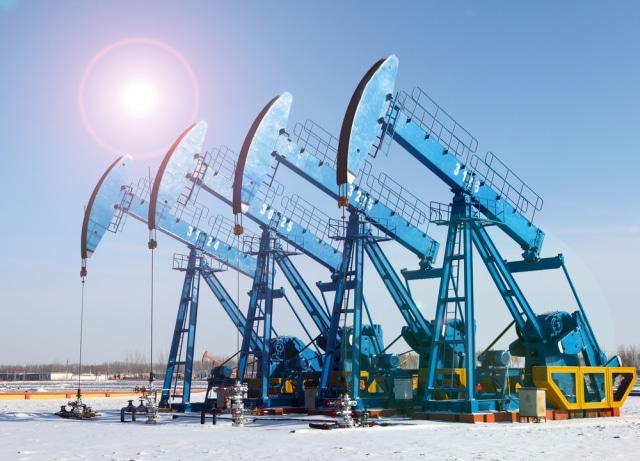Local activists in California’s Santa Barbara County have placed Measure P on the November ballot to ban “extreme oil extraction” practices such as fracking, acidization, and steam injection over concerns that they make global warming worse, cause earthquakes, pollute aquifers, and waste massive amounts of water at a time when the state is experiencing extreme drought.
The LA Times label for these same practices is a bit less rhetorically provocative: the paper calls them “high intensity petroleum operations.”
But according to Jim Byrne, a spokesman for Santa Barbara County Coalition Against the Oil and Gas Shutdown Initiative, which is running a No On Measure P campaign, both “extreme oil extraction” and “high intensity oil operations” are labels applied by activists seeking to ban practices that have been used in the county “for the past 50 years.”
The real purpose of Measure P? “It’s a shutdown initiative,” Byrne argues.
Byrne is echoing the sentiments of many in the oil industry who argue that Measure P would effectively end all oil operations in Santa Barbara County despite the measure being explicitly worded to allow existing projects to continue operating.
“It will, in fact, shut down onshore oil production in Santa Barbara County,” Dick Hart, who runs a drilling operation in Santa Barbara County for Pacific Coast Energy, told the LA Times. “Thousands of people are going to lose their jobs.”
Invoking fears of job losses and other damage to the economy is a tried-and-true oil industry tactic, and the No On Measure P campaign strikes a similar tune: Measure P will “Threaten the loss of over 1,000 existing, well-paying jobs and over $16 million in existing tax revenues for schools,” NoOnMeasureP.com warns.
Byrne says that Measure P makes no explicit allowance for the complexity of drilling for oil and the fact that even existing drilling operations need to continually seek new permits throughout the many phases of the oil extraction process. Since Measure P, if passed, would make those permits unavailable, even existing operations will have to shut down, Byrne says.
Katie Davis, a volunteer with the Yes on P campaign, says the shutdown rhetoric is just a tactic opponents of the measure are using to distract from the actual merits of the issue. “Measure P clearly and explicitly exempts all operating wells, and places no limits on how many new wells may be approved using conventional methods,” she says.
Indeed, section 5C of the measure, which you can read on the VoteYesOnP.org website, reads: “The provisions of this Initiative shall not be applicable to any person or entity that has obtained, as of the Effective Date of this Initiative, a vested right, pursuant to State law, to conduct a High-Intensity Petroleum Operation.”
Davis says that the only reason a new permit would be denied to an existing drilling operation is if, for instance, its operators wanted to begin fracking, but had not done so in the past. Banning “extreme oil extraction” going forward is good for the economy in the long term, she argues: “Oil is not a big part of the economy, like 1%. But it would put the other 99% at risk.”
There is little doubt that the methods at issue are, in fact, extreme techniques for producing oil: fracking, or hydraulic fracturing, involves injecting a chemical solution into the ground at such high pressures that it cracks up the rock and releases pockets of oil. Acidization is the process of using acid and other caustic chemicals to eat away the rock, mud, and sediment impeding the flow of oil. Steam injection is a method by which steam as hot as 500 degrees Fahrenheit is shot into a well to loosen up the oil and make it easier to extract.
But with all of the easy oil gone, the oil industry can’t afford to let bans on fracking, acidization, and steam injection pass in Santa Barbara County or elsewhere, such as in Butte and San Benito counties, where similar efforts to ban the practices are underway. Which is why the oil industry front group Californians for Energy Independence is fighting all of these citizen-led initiatives. It is, for instance, providing “major funding” to the No On Measure P campaign.
Campaign finance disclosure documents reveal that Californians for Energy Independence itself is entirely funded by oil companies. In the past year, nearly half a million dollars came from Houston-based Freeport-McMoran Oil and Gas alone, with smaller contributions made by Pacific Coast Energy, Vaquero Energy, and Breitburn Energy, among others. But by far the largest donor was Chevron, which contributed some $1.2 million.
Which is somewhat ironic, because Chevron, of course, now owns Union Oil, the company behind the notorious offshore oil spill in 1969 that dumped between 80,000 and 100,000 barrels of oil into the Santa Barbara Channel, leading to the creation of the Environmental Protection Agency.
Image by huyangshu / Shutterstock
Subscribe to our newsletter
Stay up to date with DeSmog news and alerts






